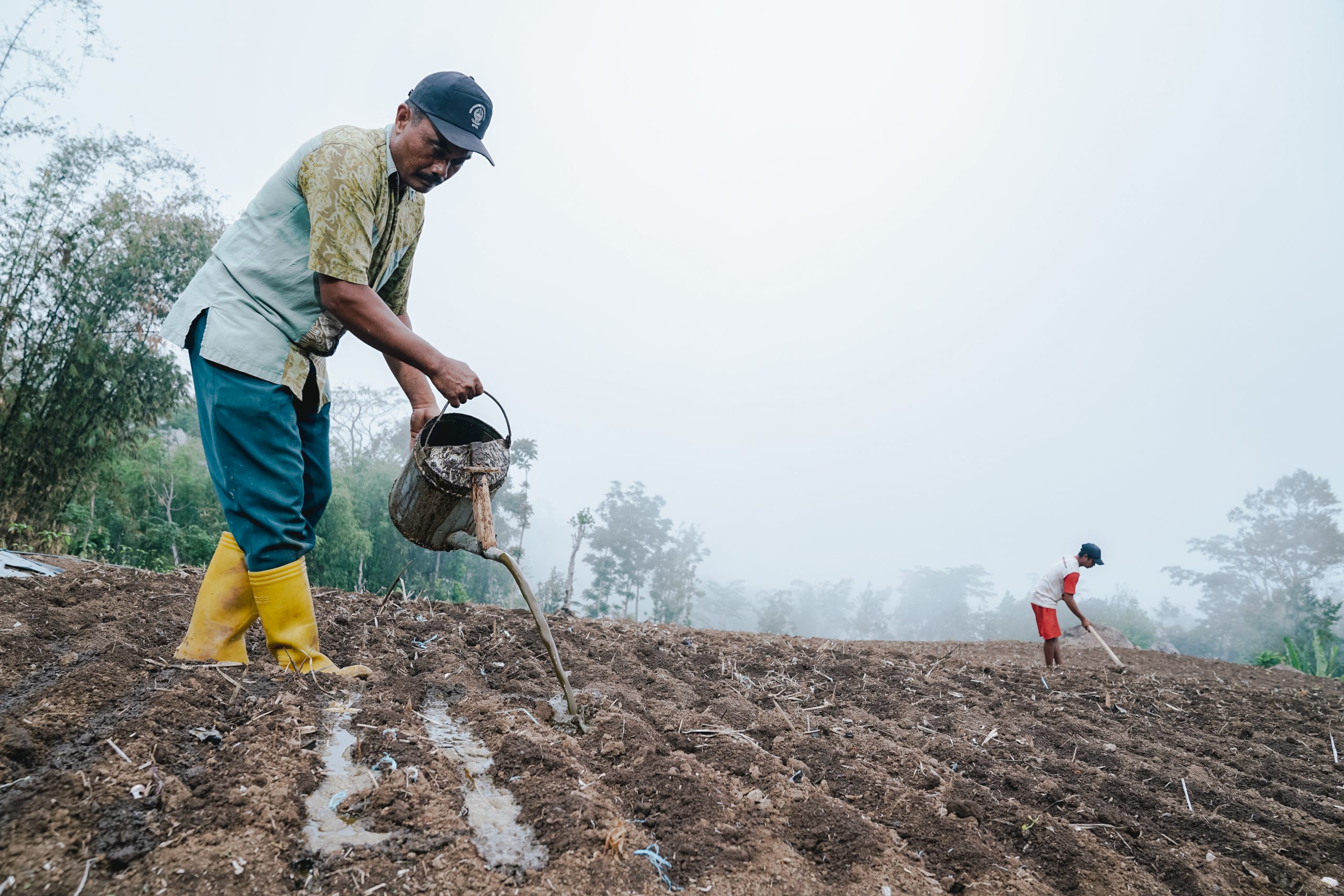Re-fertilizing Degraded Land with Bio-slurry

A 2022 report by the Central Statistics Agency (BPS) revealed that severely degraded land in Indonesia has reached 4.04 million hectares. This critical condition poses a serious challenge for many farmers, as it significantly impacts agricultural sustainability due to declining land productivity. Multiple factors contribute to land degradation, including excessive use of chemical fertilizers, erosion, drought, unsustainable farming practices, and climate change—all of which compound the difficulties faced by farmers across the country.
The movement to return to organic practices is gaining momentum in society. Nature-based solutions, for instance, emphasize that nature is not only something to be protected but can also play an active role in addressing human challenges such as climate change, land degradation, natural disasters, and food insecurity. In the case of critical agricultural land, adopting such an approach is essential to restore soil health and productivity. One promising solution is the use of bio-slurry—a nutrient-rich byproduct of the biogas process. Bio-slurry has proven to be highly beneficial in revitalizing degraded land because its nutrients are easily absorbed by plants, helping to naturally restore soil fertility and accelerate the recovery of agricultural productivity.
Fertile soil is a cornerstone of sustainable agriculture. Through its Food Independence Program, Rumah Energi encourages communities to meet their food needs by increasing agricultural productivity and achieving energy independence for cooking. One key initiative involves promoting the use of bio-slurry in farming, helping farmers transition from chemical fertilizers to more sustainable, organic alternatives.
If farmers—who are on the front lines of food production—can achieve self-reliance, and if communities embrace environmentally friendly and economically viable practices, then the vision of Indonesia Berdaya in food and energy can truly begin from the grassroots.
Written by: Fauzan Ramadhan

